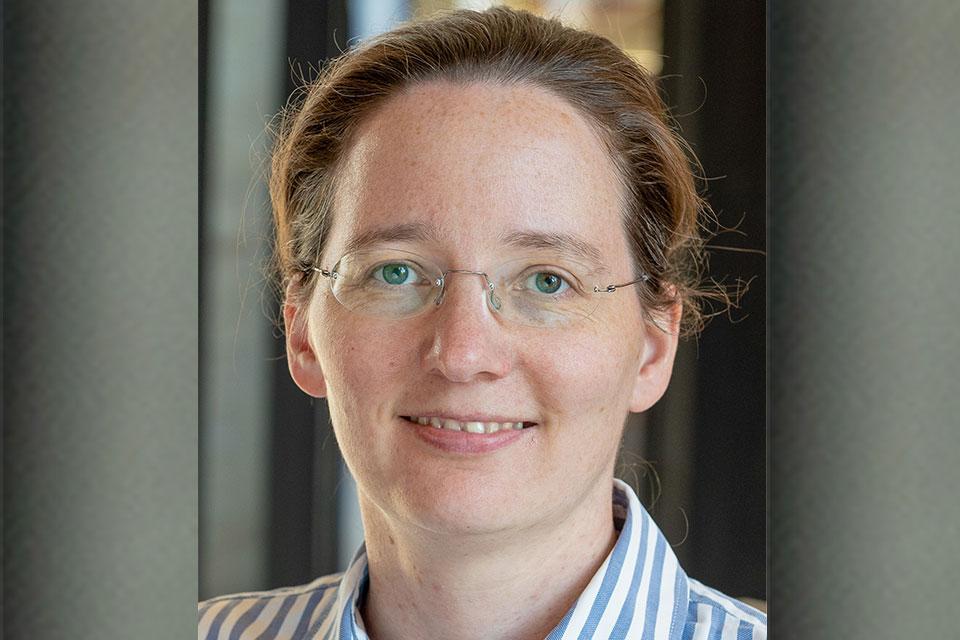Professor Laura Herz from the Department of Physics at the University of Oxford has been awarded the 2024 Institute of Physics Michael Faraday Medal and Prize. The IOP gold medal recognises Professor Herz’s pioneering advances in the photophysics of next-generation semiconductors, accomplished through innovative spectroscopic experiments.
Professor Herz’s experimental work has had a deep and lasting impact on the field of semiconductors and solar light harvesting applications. Her seminal photophysical studies in this field have become founding classics and have attracted thousands of citations. She has written many key reviews and comments in this area, is a frequent presenter of plenary, keynote and invited lectures on this topic at international conferences and collaborates with many leading researchers across the world. She has received numerous awards for her research and has been a Clarivate “Highly Cited Researcher” since 2018. In addition, Professor Herz has been a dedicated mentor to graduate students and early-career researchers, nurturing the next generation of research leaders and championing diversity through mentoring and tailored support.
Novel thin-film semiconductors have emerged at a phenomenal rate over the past few decades, yet their fundamental science has often been challenging to ascertain despite being crucial to device development. Professor Herz has made outstanding contributions in this area that have been critical to the emergence of new light-harvesting materials for solar energy conversion. Her world-leading research has unravelled new science across an impressively wide range of novel semiconductors and their nanostructures, including inorganic metal halides, chalcogenides, metal oxides, III-V nanowires, nanocrystals, organic polymers, macromolecules and biomimetic molecular assemblies. Her original findings have been instrumental to our understanding of the fundamental semiconductor physics governing these materials, encompassing light-matter interactions, electronic wavefunction delocalisation, electron-phonon coupling, charge-carrier transport and recombination. In addition, her work has had critical impact on applied aspects with relevance to photovoltaic device performance, unravelling, for example, mechanisms for charge trapping, electrical and chemical doping, atomic-scale microstructure, nanoscale effects, and structural phase instabilities.
Professor Herz’s discoveries have been enabled by her impressive ability to design and conduct sophisticated measurements. Her imaginative experimental work is based on a unique range of complementary custom-designed techniques that she designed and implemented over the past decades, including novel ultrafast non-contact laser spectroscopic probes, and combinatorial in-situ approaches custom-designed for targeted semiconductor analysis. Her experimental findings and analyses have set the agenda through fundamental understanding that has been central in guiding advancements in the discovery of new semiconductors, their fabrication, engineering and device technology, and first-principles modelling.
‘I feel delighted and honoured to have been presented with this award by the Institute of Physics,’ comments Professor Herz. ‘Laboratory-based experimental physics offers fresh challenges every day, and this award reflects the dedication of our whole team over the last two decades of shining light on the mysteries of semiconductors.’

